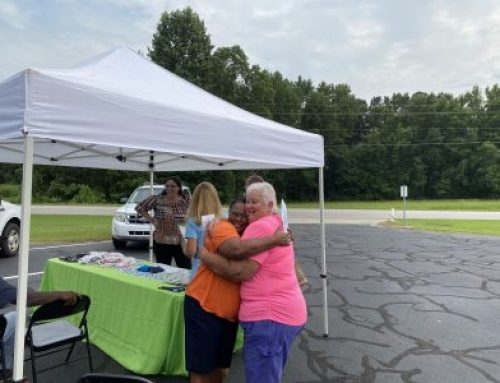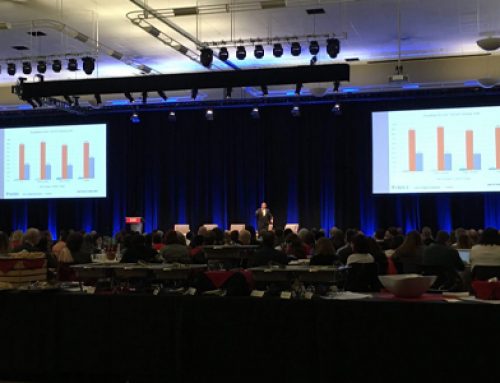By: Monica Doss and Christa Wagner Vinson
July 24, 2017
This post originally appeared on WRAL TechWire
Gigabit-speed fiber, ubiquitous digital networks, big data and the Internet of Things are driving the pace of innovation ever faster in many cities around the globe.
But for those communities not connected with high-capacity fiber networks, the opportunity to participate in the new economy’s innovation potential will not be equally shared. While the large capital investments required to build these networks have hampered their deployment, it is increasingly evident that they’re part of the basic communication infrastructure that’s essential to staying competitive no matter where you live.
Moreover, advanced technologies, with their extraordinary computing power capable of producing a deluge of data, from real-time traffic reports to cardiac monitoring vests to environmental sensors, will require a robust infrastructure backbone. It’s the adoption of ultra-fast broadband, together with these next-generation applications, that will help us solve our most basic – and urgent – civic problems.
Enter US Ignite, a five-year-old, National Science Foundation-funded non-profit.Together with their community partners, US Ignite is demonstrating how a fast, reliable and widely-available Internet will have practical, commercial and economic development value to businesses, education and healthcare institutions, the scientific community and governments.
Later this month US Ignite, in partnership with NC Next Generation Network, will bring its expertise – and cash – to North Carolina for the $40,000 Smart Gigabit Communities Reverse Pitch competition. With a matching sponsorship from Triad-based Internet Service Provider North State Communications, the competition will identify, fund and mentor two ventures whose solutions fully leverage gigabit networks to solve big problems faced by communities across the nation.
Greensboro-based New City Ventures and the RIoT network (formerly known as the NC Regional Internet of Things), through its Raleigh headquarters and Charlotte chapter, have joined forces to reach out to communities across North Carolina to promote the initiative. We approach the Reverse Pitch competition with the knowledge that all communities, from state’s metros to their rural neighbors, grapple with the same issues: supporting public safety, providing affordable healthcare, and delivering high-quality educational opportunities.
In that spirit, we’re digitally linking Greensboro, Charlotte and Raleigh co-working venues for a public video-simulcast to open the competition on February 28th. The networking of the three cities will demonstrate how advanced technology can support the development of new products, new ventures and new collaborations. We also want to amplify a shared commitment to all of North Carolina to benefit from the technology solutions that arise.
In many ways, the Smart Gigabit Communities initiative reflects North Carolina’s long tradition of building prosperity through networked local economies and collaboration. It reminds us that it takes public investment, public-private partnerships, and seamless collaboration between universities, industry and government to activate cutting-edge technology into economic advantage. Let us explain.
Decades ago, North Carolina committed to an industrial policy designed to transform low-wealth, regional economies based in tobacco, textiles and furniture, to knowledge economies that would eventually attract and proliferate new technology-driven industries including information technology and the life sciences.
One of the most compelling features of this strategy, which has been celebrated (and imitated) around the globe, was to set up industry support engines that could strengthen the ties between universities, industry and government to fortify the new technology-based sectors.
Guided by the state’s Board of Science and Technology, North Carolina made significant and visionary financial investments to undergird this strategy, among them funding the Microelectronics Center of North Carolina (MCNC), incorporated in 1980, and the North Carolina Biotechnology Center, in 1984.
These institutions fueled a major transformation of the region’s economy that had begun with the construction of the Research Triangle Park beginning in the 1960’s. MCNC and the NC Biotech Center’s presence and mission gave way to still other transformational organizations like the Council for Entrepreneurial Development (CED), the first new-venture catalyst of its kind in the country.
In recent years, the Triangle has seen its approach embraced by its in-state neighbors. As economic development leaders in Charlotte and Greensboro, we can attest to the inspiration the Triangle has provided to a burgeoning statewide culture of innovation and entrepreneurship in our communities and in Wilmington, Asheville, Winston-Salem and far beyond — including promising local efforts in Gaston County, Holly Springs, Wilson, and Star, North Carolina.
Ever since IBM announced its intention to build its Research Triangle facility in 1965, North Carolina leaders have focused on what the digital revolution means for job creation in our state. While pundits predict the fourth industrial revolution will give rise to job-killing automation, North Carolina’s competitive leadership in next-generation technologies can guarantee, again, that the best new products, services and jobs will be created.
And this is the reason we’re excited about bringing the US Ignite Smart Gigabit Communities initiative to North Carolina. It comes down to our belief that at this moment we can again make, to paraphrase Gov. Jim Hunt at MCNC’s grand opening in 1981, a once-in-a-lifetime investment in our future.
About Guest Bloggers
Christa Wagner Vinson was formerly an analyst with the North Carolina Department of Commerce and part of the founding staff of the Research Triangle Cleantech Cluster. She is currently an economic development consultant and RIoT advisor based in Charlotte.
Monica Doss was the founding President of Research Triangle-based CED (Council for Entrepreneurial Development) and was formerly Director of Entrepreneurship and Advancing Innovation at the Kauffman Foundation. She is a Principal at New City Ventures.





